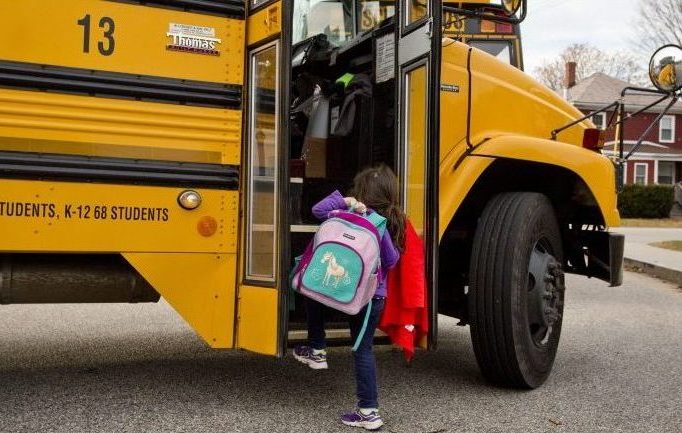Under Maine law, kids don’t have to start school until they are 7 years old. But most start before that – as much as three years before that – and if they are enrolled, it is important that they attend, every day, unless they absolutely cannot.
However, too many parents are not getting the message, and kids are suffering the lifelong consequences. Chronic absenteeism is a substantial and underreported problem in Maine schools, one that threatens a child’s education just as it is beginning. When parents cannot or will not address a child’s repeated absences, schools must be able to address it themselves.
TOO MANY MISSED DAYS
That’s where L.D. 96 comes in. The bill, from Sen. Nate Libby, D-Lewiston, would allow school districts to enforce truancy laws on enrolled students under the age of 7. In doing so, it would allow districts to use the full power of the law to engage with the parents of young students who are missing too many days, and correct that path before real damage is done.
It is just one tool for combating chronic absenteeism, but it is a valuable one. According to a 2016 report from the U.S. Department of Education, 15 percent of Maine students miss at least 15 days a year. Research by Spurwink, a Portland-based social services agency, found that 4 percent to 8 percent of elementary school children in Cumberland County miss 18 or more days of school.
Absenteeism is closely linked with poverty, and poorer schools struggle more than others.
In Lewiston, where the school district has taken a leading role in addressing the issue, 25 percent of pre-K students, 20 percent of kindergartners and 15 percent of first-graders are chronically absent.
Those missed days reverberate through a student’s life. Children who are chronically absent in the first three years of elementary school are much less likely to read at grade level by third grade, and those who cannot read at grade level by third grade are four times more likely to drop out of high school.
HELPING PARENTS
That says a lot not only about the importance of regular attendance but also of having parents who get their children to school every day. Young children miss school in large part because of instability at home, whether that is with transportation, health or housing. That’s often mixed with a sort of parental complacency, the idea that elementary school absences are not that big of a deal. Those parents also are likely to shirk other responsibilities related to their kids’ education, making intervention necessary.
Schools that are successful in reducing absenteeism start by tracking absences in real time, then contacting parents and working with them to impart the importance of regular attendance, and help them overcome barriers, often with the tools provided by Count ME In, a statewide attendance initiative. Windham Primary School, for instance, reduced chronic absenteeism from 103 students to 74 in one year using this method.
But when the student is under 7, reluctant parents can avoid these types of interventions. According to Lewiston Superintendent Bill Webster, such a situation in his district ended the prospect for a home visit by family services that could have answered why one student was missing too much school, and helped find a remedy.
L.D. 96 would solve that problem by saying that all students enrolled in school should be there on a regular basis. At the bill’s hearing last week, opposition came from home-schooling parents concerned about a provision requiring that parents visit the school board before unenrolling their young children. In response, Libby said he may propose an amendment that would substitute a letter to the superintendent for the visit.
With those concerns alleviated, lawmakers should pass this bill into law, and give schools the ability to help their youngest students get off to a good start.
Send questions/comments to the editors.


